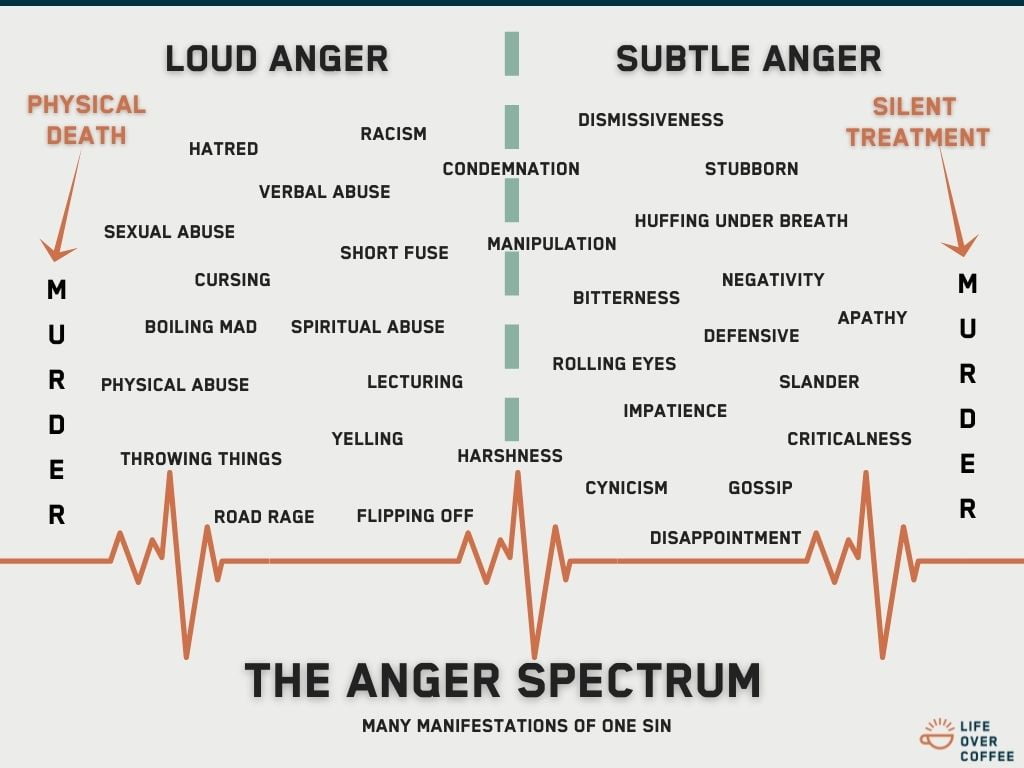Ep. 263 How to Be Free of Sin Regardless of the Other Person

Photo: ©RgStudio Getty Images Signature via Canva.com
Shows Main Idea – Sometimes we can become stuck in our old habits, and it creates a blind spot that keeps us from changing. Mable is one of those stuck people. She has a life-long pattern of sinful anger and does not know how to overcome it. Recently, after a dust-up with her friend Marge, I gave her a practical analysis of the problem and solution. Mable has hope and a plan for lasting change.
Show Notes
You may want to read:
The Scene
- You sin in anger.
- It’s a life-dominating sin.
- Though you have matured through the decades, the anger is still there.
- It’s less volatile, which reduces the consequences, but the sin’s ontology is identical, regardless of the force.

Your Response
- You apologize, which is a huge mistake.
- What happens in that relational drama?
- You did not allow the person to forgive you.
- It was a sin acted out on another person, and the offender continues to remain in control of the situation.
- You did not allow the offended to enter into the offense and work through the removal of it.
- Ironically, your anger and your “forgiveness process” are identical: you’re still in control.
The Problem
- Because this relational interaction was merely on the surface level, you will not be able to overcome your anger, as far as rooting it out.
- Though you may have relational calmness for a few days (or weeks), but you will not change, and the tension with the other person will find no resolution.
The Solution
- It would be best if you went more in-depth in your repentance by asking for forgiveness, which is transactional. Rather than saying, “I’m sorry,” require the offended person to forgive you.
- You acknowledge what you did clearly.
- You make it easy for them to forgive you because they believe you know what you did.
- You made your case against yourself so clear that you have convinced them that you understand what you did.
- You state (confess) your anger.
- You identify what you wanted (James 4:1-3).
- You explain how that idol of the heart controls you.
- You convince them that you want more than superficial, behavioral change, but you want authentic, heart change, which is why you’re addressing it at the level of desires, lusts, and cravings.
Renewing the Mind
To put off your old self, which belongs to your former manner of life and is corrupt through deceitful desires, and to be renewed in the spirit of your minds, and to put on the new self, created after the likeness of God in true righteousness and holiness (Ephesians 4:22-24).
This process is part of the renewal aspect of Ephesians 4:22-24.
- You’re powerfully putting it off.
- And by talking through it with the offender, you’re renewing your mind.
- This conversation is the beginning of redemptive speech (Ephesians 4:29), which is the “put on” aspect.
If you only said, “I’m sorry,” you would never go to this relational depth with the person, and your sin will remain like a stain under the white paint. You will not have gone to this detail with God either. You would have smoothed out a horizontal, relational dust-up with a friend but with no depth through relational interaction. Eventually, that sin will return.
Scenario Two
The person you sinned against is an unbeliever. They cannot forgive you because forgiveness is a three-actor play where God is part of the process.
- The offended is an offender to God (they are unregenerate), so God is against them. His wrath is on them (John 3:36).
- God is opposed to the proud (James 4:6). He is not for them, with them, or working for them.
- Forgiveness flows through a forgiven vessel. God provides the grace for anyone to forgive someone in an effectual sense.
For this person to say, “I forgive you” is merely words, with no faith-infused power. They are mouthing something, but it’s not effectual because God is not the one providing or energizing their forgiveness of you.
- It would be like a person “asking Jesus into their heart,” but God was not part of it. They were mouthing words because they were not coming from the Lord.
We are not the originators of salvation or forgiveness, but the vessels of them. They are gifts from God. The offended must have a “clear path” from God to themselves to extend the forgiveness that they have received from Him to others. Otherwise, the point-of-origin for the forgiveness comes from a dark place—an unregenerate heart. It’s mere words.
How Do You Change?
If the person cannot forgive you, but you have a life-dominating sin with anger, how do you become free from your sin?
- You go through the forgiveness process with them.
- Your responsibility for change is to do all that depends on you (Romans 12:18).
The Ephesians 4:22-24 template is still in play. The fact that they cannot forgive you does not hinder you from changing.
- Verse 22: You talk with depth and comprehension about what you did. What, why, and how you sinned.
- Verse 23: You are washing—renewing—your mind with God’s Word. You’re not dependent on them forgiving you, but you do need the Lord to cleanse you with His Word.
- Verse 24: You practice putting on new thoughts, which you can do because you’ve gone to such great depths in unearthing your evil motives (James 4:1-3).
- You understand what you did, why you did it, and how awful it is in the sight of God.
- You’re broken and cleansed, which positions your mind to put on new words that are not angry ones.
- The other person receives different words from you—non-angry ones.
Gospel Side-Effect
This process is a powerful display of the gospel on an unregenerate heart.
- Anger is the strength and wisdom of the world.
- The process that I have laid out here is foolish and weak (1 Corinthians 1:18-25).
The unsaved person you sinned against would never expect you to go to those depths to find cleansing for your sin.
- Minimally, they might expect an apology.
- There would never see brokenness, weakness, vulnerability, and humility coming.
By working out your forgiveness with them, it would have a two-fold effect.
- God would forgive and cleanse you of a life-dominating sin.
- You could not present a more powerful gospel presentation to a lost soul who needs God’s forgiveness.
Call to Action
- The question you have to ask is if you’re going to continue to control the narrative by apologizing or are you going to work out your salvation through humble repentance, as laid out here? Apologizing and anger are similar in that the angry person controls the “repentance.” The humble person wants to change, and it begins by assuming the position of weakness, vulnerability, humility, transparency, and honesty, which is God’s wisdom and power working through them.
Need More Help?
- If you want to learn more from us, you may search this site for thousands of resources—articles, podcasts, videos, graphics, and more. Please spend time studying the ones that interest you. They are free.
- If you want to talk to us, we have private forums for those who support this ministry financially. Please consider supporting us here if you would like to help us keep our resources free.

Rick launched the Life Over Coffee global training network in 2008 to bring hope and help for you and others by creating resources that spark conversations for transformation. His primary responsibilities are resource creation and leadership development, which he does through speaking, writing, podcasting, and educating.
In 1990 he earned a BA in Theology and, in 1991, a BS in Education. In 1993, he received his ordination into Christian ministry, and in 2000 he graduated with an MA in Counseling from The Master’s University. In 2006 he was recognized as a Fellow of the Association of Certified Biblical Counselors (ACBC).


